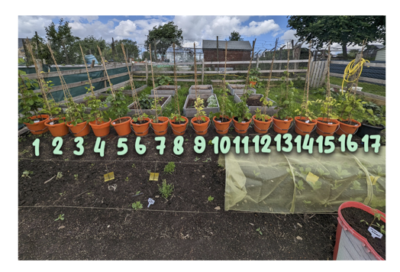Please review the Grow Your Own section for much practical information on approaching growing and working with nature. This basic knowledge can support all growth! When embarking on a community project, much of its success will be determined by the cohesion and organisation of your team. A non-hierarchical grassroots approach is at the heart of PFFA’s vision and values. Spending time on nurturing the team, as you do with your grown produce, will yield much better results than if left with little attention.
Purpose
All team members need to know what they are supposed to do, the team’s purpose and key aims should be clear, as well as everyone being very clear what their individual roles and contributions are. When establishing the main goal for your project, it may be worth exploring a few potential barriers and discussing ways of overcoming if they do arise. Divide large objectives into smaller, more manageable ones. Define the outcome well. All decisions and priorities should be set within team meetings to ensure everyone is aware of all information.
Roles
It may be worth establishing key roles and skills needed within the team and aligning these with team members. Factor in people’s passion, skillset and time that they have to offer. Consider, some may have more experience than others and therefore may need more support and guidance than others. Build in opportunities to review and reflect how you are meeting your aims, celebrate successes and plan new goals.
Meet
Sometimes meetings may need to occur virtually or you may find you work at different times to each other, however making time to connect as group in person will help to grow a more solid team. It is helpful to get to know each other and find things in common. Learn about your teammates, chat with them on a regular basis. Praise them. Listen and empathise. Show appreciation when you can, it is motivating for us all.
Communicate
Communication and transparency are key. Find the best and preferred ways to communicate for the team. This may be in person at regular meetings, emails, phone calls or on social media. Consider having a few key aims to discuss and sharing these beforehand, decide if brief notes should be made during the meeting for future reference and for those who are unable to attend.
Transparency
Transparency is so important for teams to work effectively. Ensure there is complete clarity around outcomes so individuals know and understand what is expected from their contribution. What does the outcome look like? Is there a time line involved? Honesty is vital and appreciated when delivered with warmth and compassion. On the occasion that difficult conversations and disagreements arise, aim to move forward with constructive criticism so that everybody feels their contribution is acknowledged. Clashes of personality can be an issue and sometimes it’s better to keep the protagonists apart, and give them vastly differing roles, so there is minimal contact and friction and everybody remains a valued member of the team. Try to stay focused on the aims the team is working towards rather than individual preferences.
Nurture
Teams grow and change Teams change. People come and go. Consider how you can nurture the team and check in on each other to make sure everyone feels heard, valued and effective. If people feel insignificant or unsuccessful in their role, it can diminish their passion or interest in the effort and lower their engagement. This may lead to people leaving and the project stopping. Likewise, when new people join, ensure newcomers are up to date on key aims, roles, successes and progress. Consider how the team can grow. Speak with people and share your passion for the project, invite people along to see what you are doing. Are there other groups you could collaborate with or share ideas, skills and information with? Perhaps reach out to local growers or farmers and seek advice, support or share what you are doing in the local community.
In summary, have clear aims for your team and the individuals involved, spend some time planning and organising, assessing progress throughout your project. Make sure that you communicate effectively with your team and maintain a warm and supportive culture. Communicate with clarity. Look after existing members, welcome new ones and consider how to tap into resources in the wider community.




